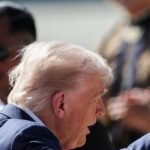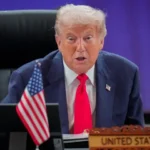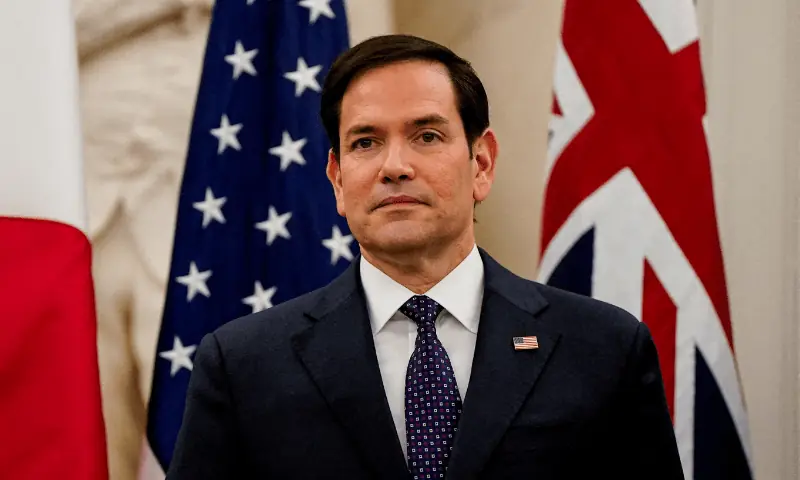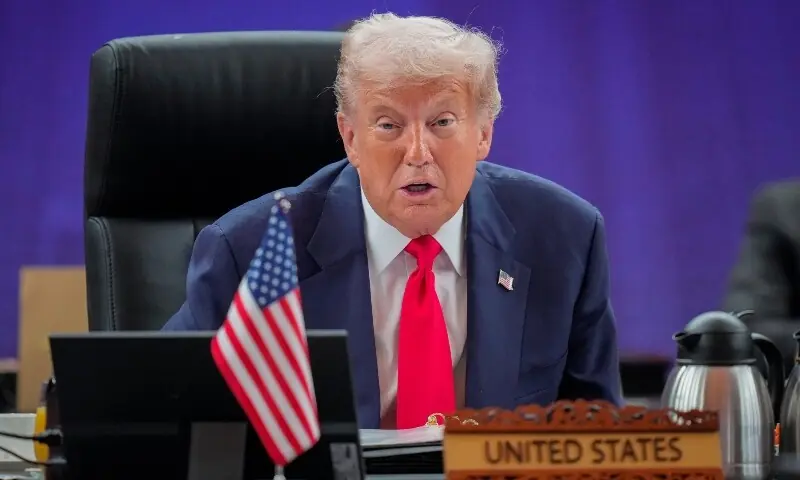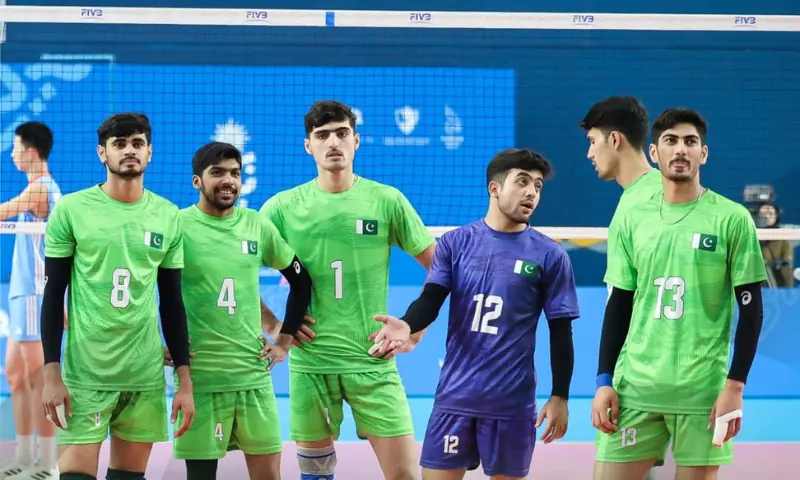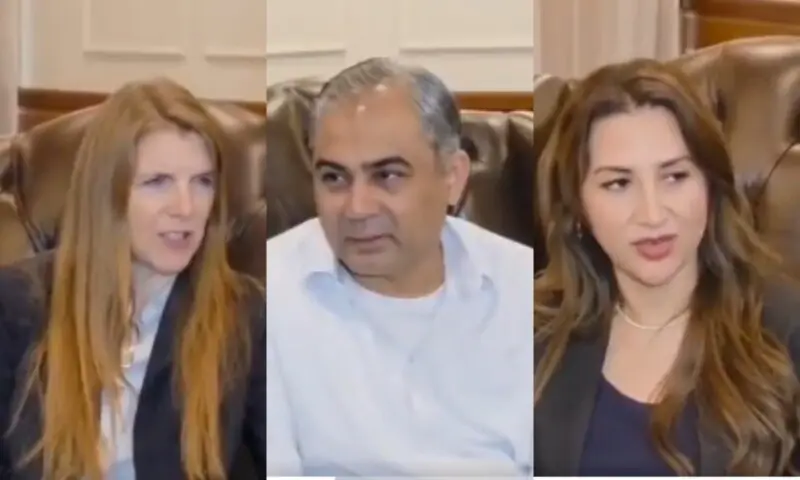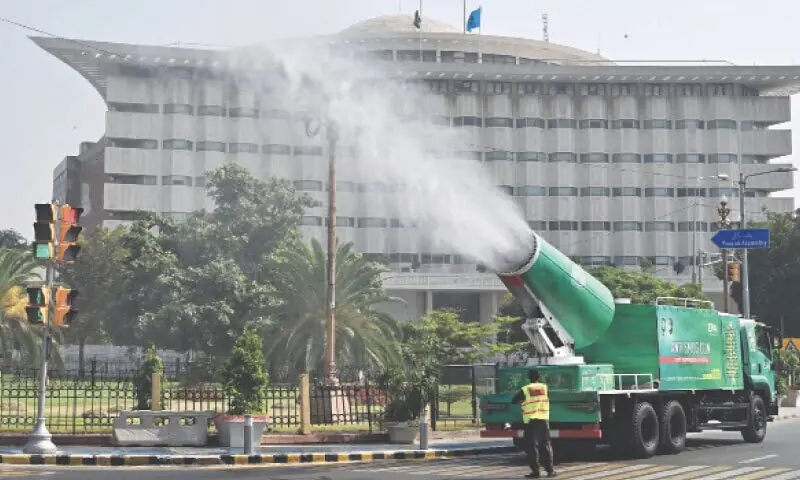Secretary of State Marco Rubio has said that the United States sees an opportunity to expand its strategic relationship with Pakistan and that the recent strengthening of ties between the two countries does not come at the expense of Washington’s relationship with New Delhi.
He made the remarks during a press conference on Saturday, during which he was asked if India had expressed any concerns about the “stronger relationship” between the United States and Pakistan.
“They really haven’t; I mean, we know they’re concerned for obvious reasons because of the tensions that have historically existed between Pakistan and India. But I think they have to understand that we have to have relationships with many different countries,” he said, according to a transcript of the briefing on the State Department website.
He continued: “We see an opportunity to expand our strategic relationship with Pakistan, and I think we have achieved that – that is our job, to try to determine how many countries we can find that we can work with on things of common interest.
“So I think Indians are very mature when it comes to diplomacy and things of that nature. Look, they have some relationships with countries that we don’t have relationships with. So, it’s part of a mature and pragmatic foreign policy. I don’t think anything we’re doing with Pakistan is at the expense of our relationship or friendship with India, which is deep and historic and important.”
Rubio was also asked if the recent improvement in ties between the United States and Pakistan was based on “Islamabad’s recognition of the role of the United States and the president.” [Donald Trump’s] What is your role in resolving and preventing a possible war between India and Pakistan?”
“What do you think was the turning point?” a reporter asked him, according to the transcript on the State Department website.
To that, Rubio began his response by saying, “I think they appreciated it.”
He went on to say that “every time you work with someone, you meet them and you interact with them, so I think there was a certain sense of happiness about it. But even before the conflict started, I had already approached them and said, look, we are interested in rebuilding an alliance, a strategic partnership with you. We believe that there are things that we can work together on with them.”
The secretary of state reiterated that the United States was “fully aware of the challenges with respect to India and everything else, but our job is to try to create opportunities for partnerships with countries where possible. And we have had a long history of partnering with Pakistan on counterterrorism and things of that nature. We would like to expand it beyond that, if possible, understanding that there will be some difficulties and some challenges.”
“But I think it’s very encouraging that that relationship has strengthened the way it has, and I don’t think it’s at the expense or instead of a good relationship with India or anyone else,” he added.
Earlier this month, a Sunrise The report highlighted that Pakistan was entering a new phase in its economic and strategic partnership with the United States, as the two allies moved closer to implementing an agreement for the export of rare earth minerals.
The improving ties and new partnership between the two sides was particularly seen after Pakistan acknowledged US President Donald Trump’s role in resolving a four-day escalation between nuclear powers Islamabad and New Delhi.
Following this development, Pakistan’s Army Chief of Staff, Field Marshal Asim Munir, traveled to Washington on a five-day official visit in June. During the visit, he met with President Trump over lunch, becoming the first serving Army chief to have a face-to-face meeting with a sitting U.S. president.
During a subsequent visit to the United States in August, Field Marshal Munir called his second trip to the United States in a span of just a month and a half a “new dimension” in ties between Washington and Islamabad.
In September, he accompanied Prime Minister Shehbaz Sharif to a meeting with Trump on the sidelines of the United Nations General Assembly session in August, during which regional security and cooperation in the field of combating terrorism, among other issues, were discussed.
Meanwhile, Trump has thanked both Prime Minister Shehbaz and “my favorite,” Field Marshal Munir, for their efforts in securing the Gaza ceasefire agreement.
Earlier today, he called Prime Minister Shehbaz and Field Marshal Munir “great people” and said he would get the recent Pakistan-Afghanistan conflict “resolved very quickly.”
Separately, American metals company US Strategic Metals (USSM) signed a memorandum of understanding (MoU) with Pakistan in September to invest approximately $500 million to establish mineral processing and development facilities in the country. It recently sent its first shipment of mineral samples to the United States to advance the deal.
The sample shipment, prepared locally in collaboration with Frontier Works Organization, includes antimony, copper concentrate and rare earth elements such as neodymium and praseodymium.
In a statement, the USSM described the handover as “a milestone in the strategic partnership between Pakistan and the United States,” noting that the MoU “establishes a roadmap for cooperation across the entire minerals value chain, from exploration and processing to the establishment of refineries within Pakistan.”
